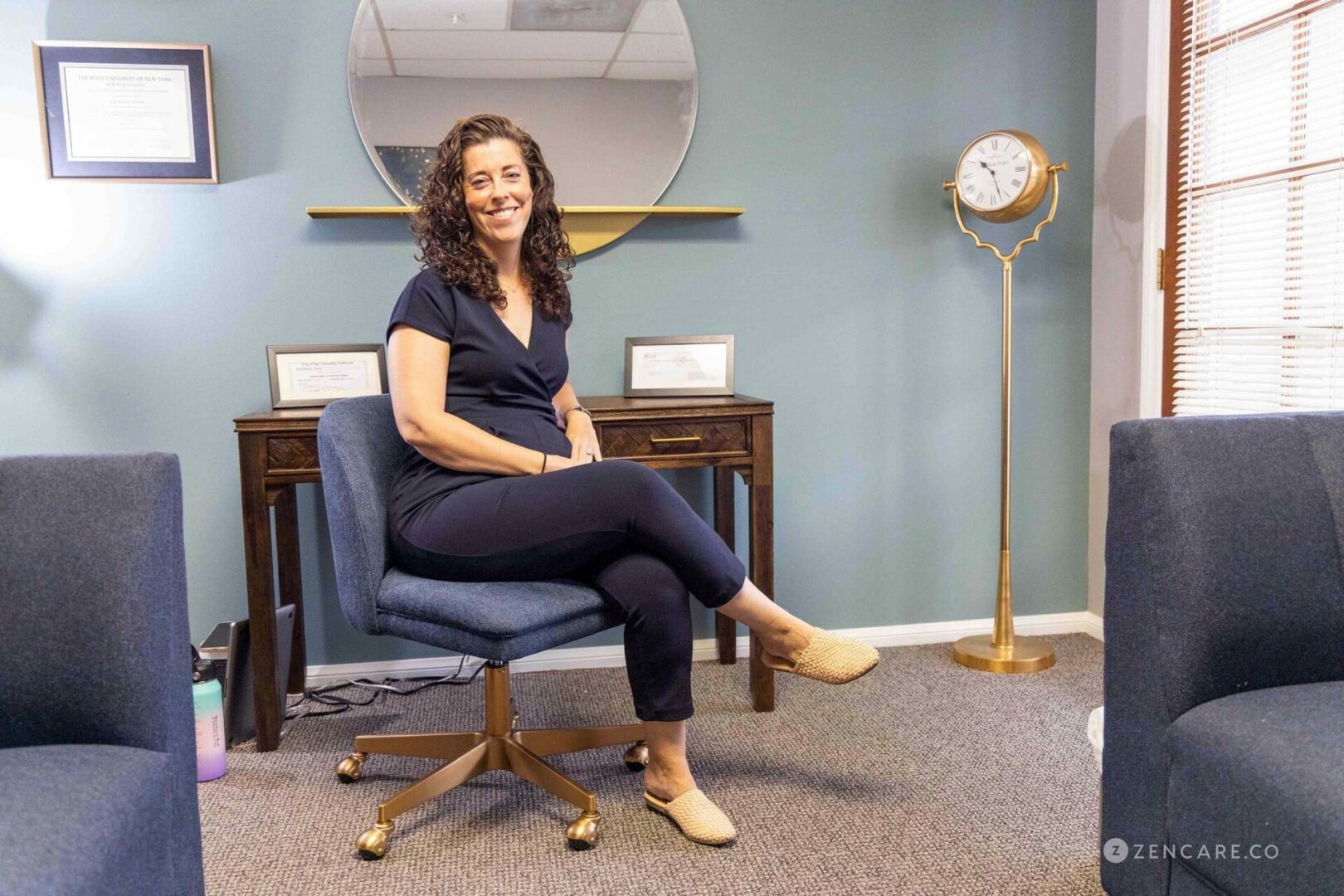We caught up with the brilliant and insightful Laura Lee Townsend, LMFT, LPCC, CHHC a few weeks ago and have shared our conversation below.
Laura Lee, so great to be with you and I think a lot of folks are going to benefit from hearing your story, lessons and wisdom. Imposter Syndrome has held many people back, so we’re really interested to hear about your story and how you overcame imposter syndrome.
Imposter syndrome can be common whenever you’re starting a new endeavor. However, mental health professionals like myself are especially prone to it because the pressure to conquer all your own problems before you can help others with theirs feels palpable and necessary.
That’s not true or realistic. I remind myself and clients often that we’re all imperfect, flawed human beings first before we add our other layered identities.
When I was starting as therapist and then when I was starting within my Eye Movement Desensitization and Reprocessing (EMDR) therapy specialization, the key to overcoming imposter syndrome was ongoing consultation with other seasoned professionals in my field. We still consult on cases. When I hear other advanced professionals I admire also struggle with how best to serve someone, it reminds me just how complex our work is.
Rarely is there one straightforward “right way” to help.
Research constantly evolves. In some regards, that can be daunting, and it can be comforting. I know I will always be learning and there is no arrival point at “expert status.” I remind my clients that they are the experts on themselves. I am a co-collaborator in our work together, and that extinguishes any imposter syndrome doubts or fears.
Appreciate the insights and wisdom. Before we dig deeper and ask you about the skills that matter and more, maybe you can tell our readers about yourself?
At this point in my professional journey, I am embracing massive change and flexibility at a much more dramatic pace than I could have imagined. I started my own private practice in June of 2021, specializing in trauma recovery and EMDR therapy. In December of 2021, I learned I had to relocate offices, so that was a big change. Right as I was researching a bigger office to expand and hire associates, I learned I was pregnant with twins. Twins do not run in either my partner’s family or mine, so it was a major shock for us.
However, this was a huge reason why I shifted into this work – to have that flexibility as my life changed.
When it looked like I was going into premature labor at 28 weeks, I was put on bedrest at home. I have never been so incredibly grateful that I could work fully remote. I think the pandemic allowed most of us to be much more comfortable with remote work even in industries like ours where it wasn’t as common. I still prefer in-person sessions whenever possible, but when you have limitations or disabilities, telehealth is such a gift.
My work goals had to change. I knew now would not be the best time to expand, so I took a smaller office. I also took a four-month maternity leave after my twins were born at 35 weeks.
I also realized once I was back to work that having two locations wasn’t working for me now that I was a mom of three kids. It was a dream of mine to have a private practice location in Laguna Beach, and I did it. But at the end of last year, I made the difficult decision to close that location and focus solely on my San Clemente location.
Right as I was winding down my Laguna Beach location, we had some scary health concerns with one of our twins. The doctors strongly urged us to reduce his exposure to daycare. Within a week, I completely redesigned my work schedule to accommodate his (and his twin sister by default because twins are a package deal when it comes to daycare) needs.
We’re still adjusting to the new schedule, and it was particularly difficult for my 6-year-old daughter at first. Balancing work and family is an ongoing challenge. It’s vital we give ourselves and others grace and compassion because it’s so hard and we all have different levels of resources.
For 2023, my intention is all about simplifying. Even though I am disappointed my expansion will have to wait, I know I made the right choice for my business and my family. I am excited to continue my EMDR training by becoming certified in EMDR therapy. Certification is the next level of mastery in my field. After that, I look forward to training to become an EMDR therapy consultant so that I can teach and train others.
If you had to pick three qualities that are most important to develop, which three would you say matter most?
The three qualities that have been most impactful in my journey are:
• Curiosity
• Compassion
• Self-discipline
When I was just starting out as a therapist, I was so anxious. I know a lot of my colleagues were, too. As previously mentioned, it tends to elicit imposter syndrome in the beginning.
My advice to budding therapists is: Practice open-ended questions.
Practice deep listening and being comfortable with silence.
Get comfortable with exploring uncomfortable topics when they arise: death, finances, religion, sex, politics, suicide.
When you’re starting out in the field there can be this deep fear that you’re going to “break” someone.
Do not fear being direct.
Practice asking, “Have you been thinking about suicide?” with the same tone as, “Have you been thinking of going to the store?” Their painful thoughts and emotions need acknowledgement and tenderness. That opens the door just a crack, so you can begin the road to recovery together.
(Disclaimer: If you or someone you know is actively suicidal, please call or text 988, or go to your nearest emergency room.)
Compassion for self and compassion for others in this work is essential.
You will make mistakes.
You will say the wrong thing. That is OK. Own it, and apologize to clients quickly. Get their feedback about it. When you do, it models repair after disappointment or hurt, even when unintentional. Repair is a wonderful skill to practice because so many of us weren’t modeled that second half of the apology equation. When we hurt someone, it’s crucial to hear how it impacted them and take responsibility for our part.
Becoming a trauma therapist (or any specialized mental health professional) takes a long time. It took me seven years. To make it through requires serious self-discipline. There were plenty of times I wanted to give up, but I knew I was too far out on that bridge to turn around, so I just kept going. I had my share of meltdowns along the way, but I had supportive mentors and peers to provide me with perspective. Pay attention to the company you keep because you will need positive people reminding you of how strong you are and why you decided to take this path.
Is there a particular challenge you are currently facing?
The current challenge I’m facing is juggling growing my practice and being available to my family. On many days, I feel like Sisyphus pushing the boulder up the mountain only to watch it roll right back down and do it all over again the next day. Nothing can really prepare you for twin motherhood or what it’s like to be outnumbered by your children. You can know intellectually that it’s going to be a lot of work, but it’s quite another to experience it.
I don’t think it’s a coincidence that the qualities that are so good for my professional development as a trauma therapist are also applicable for this balancing act. I try to stay curious, compassionate, and disciplined. I aim to challenge my assumptions on what it means to be a “good mom” and assess that definition according to my own situation and circumstances.
I try to give myself and my family lots of compassion because we’re all doing a ton. It is all so much messier and complex than I ever imagined.
It is a daily lesson in humility when you’re doing double diaper duty and getting barfed upon on a semi-regular basis. I hold that humility close as I change into my work clothes and listen intently to my clients’ experiences. Their strength and resolve inspires me to push that boulder up the mountain another day.
And most of all, I continue to show up for myself and for those I care about. Even when it’s hard, even when I’m exhausted, even when I head into work wearing a food stain mashed into my shirt that I missed from one of the twins and yesterday’s makeup.
I strive to embody Maya Angelou’s quote, “I’ve learned that people will forget what you said, people will forget what you did, but people will never forget how you made them feel.”
Contact Info:
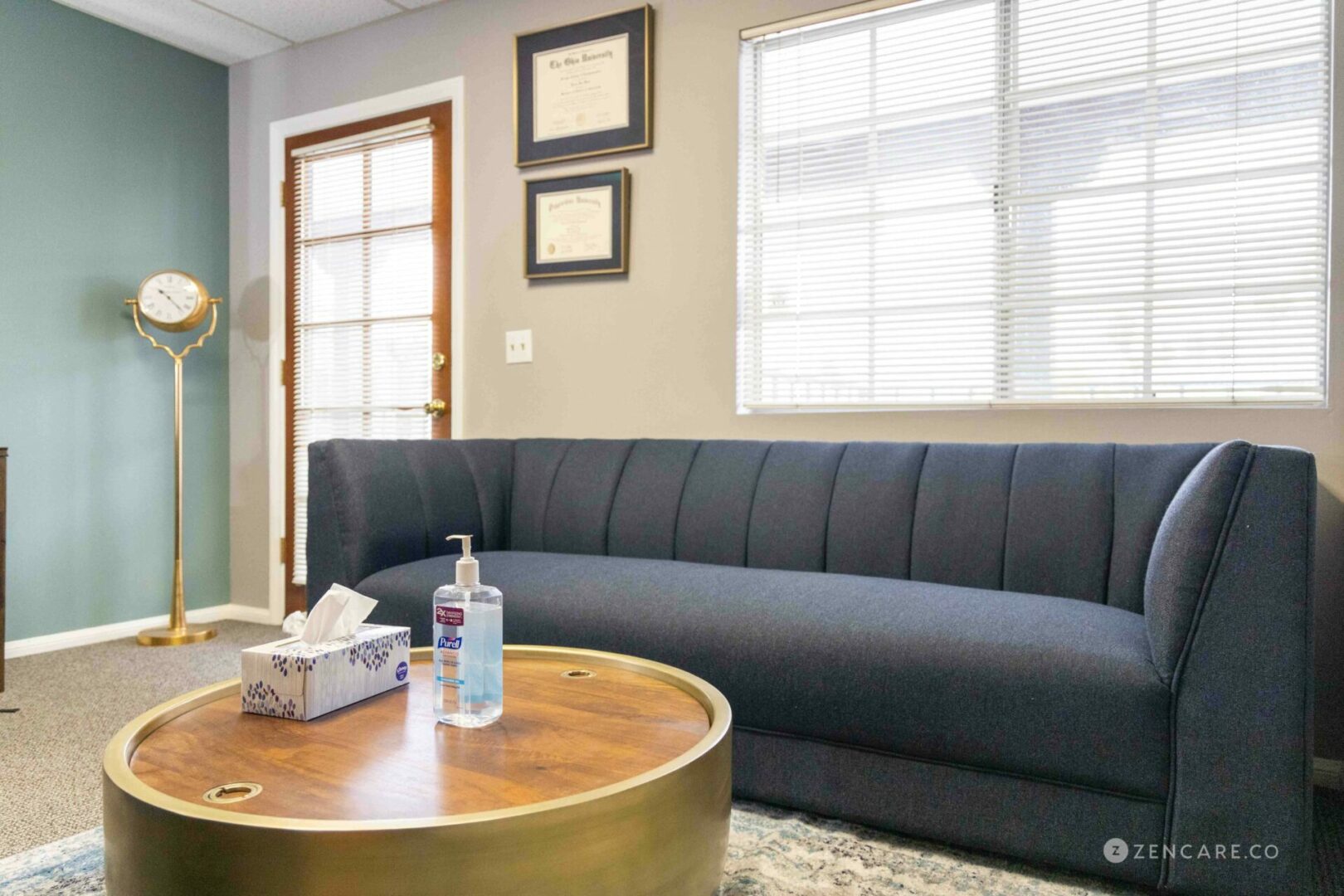
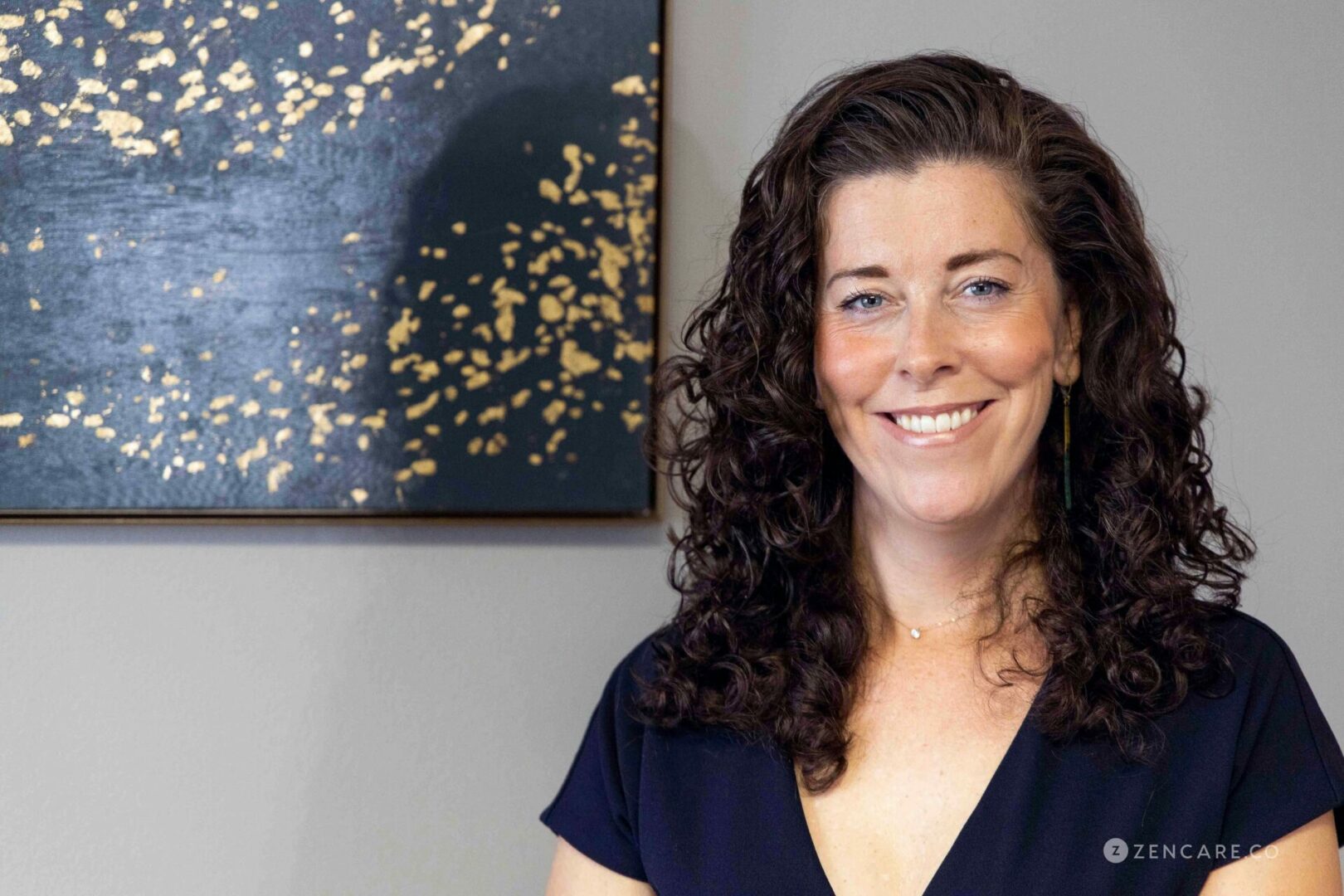
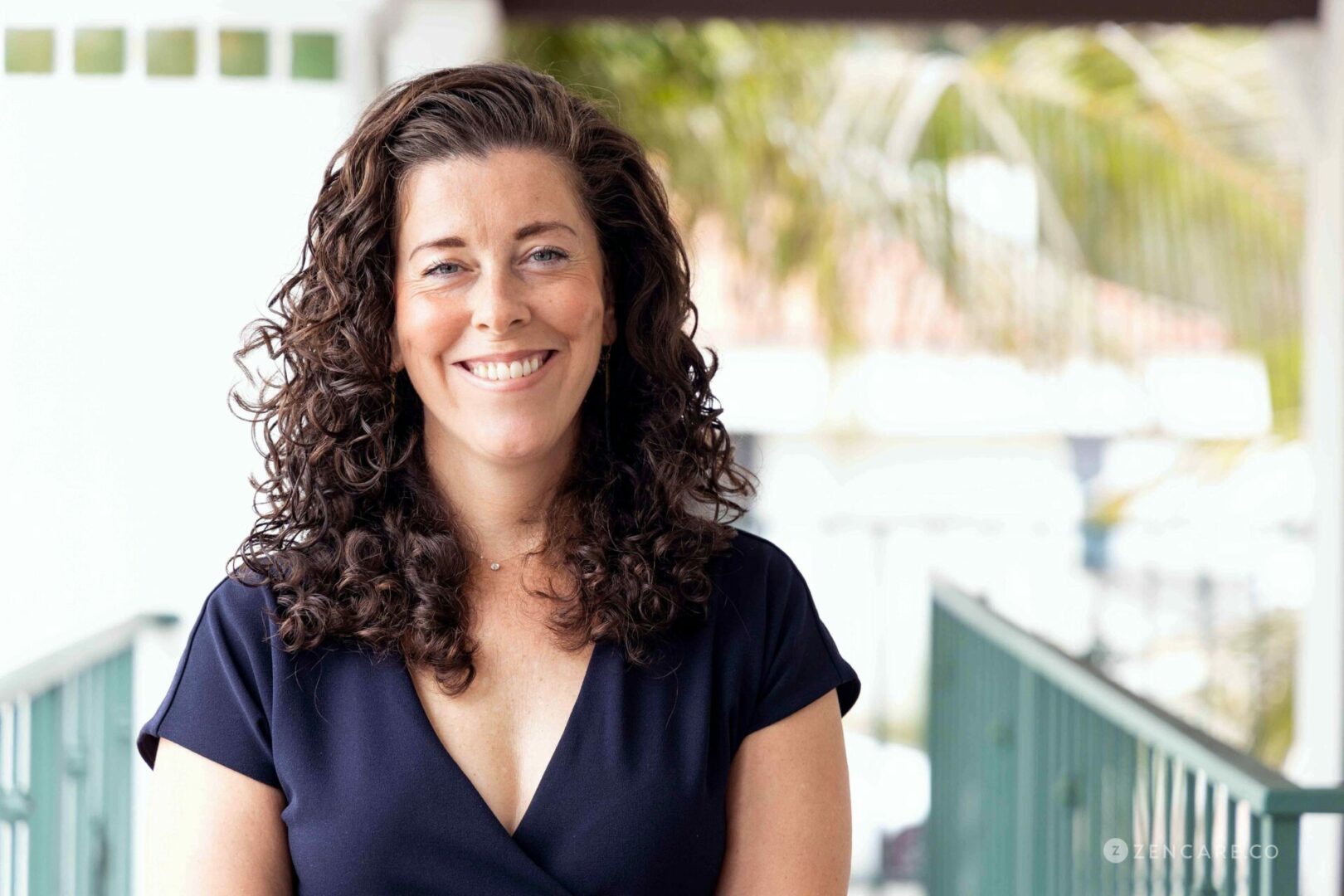
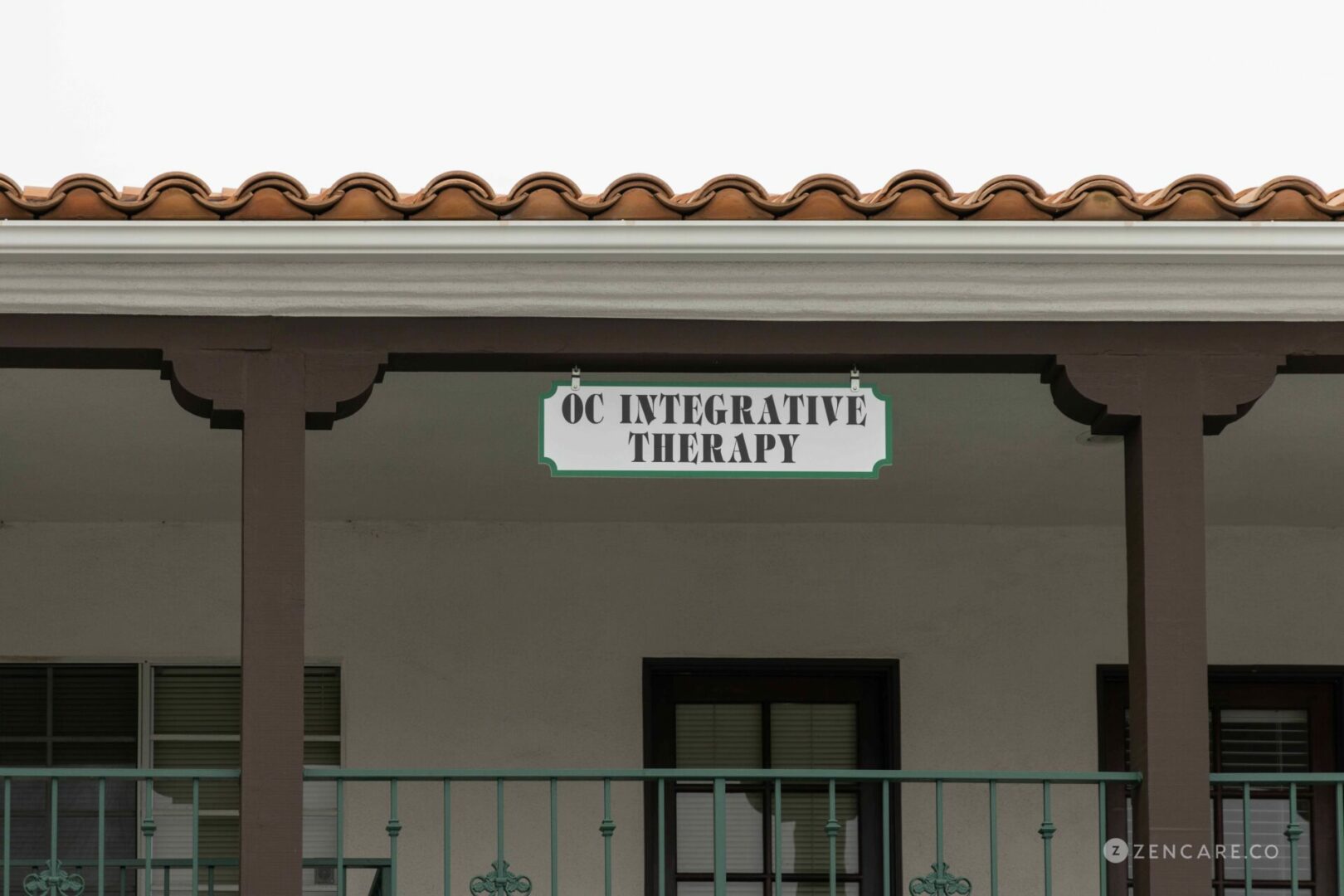
Image Credits
Photo credit: Zencare

